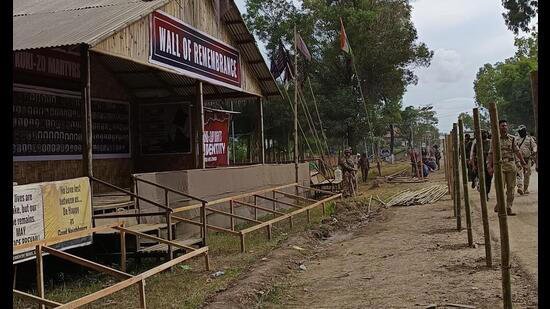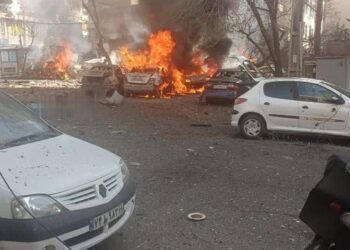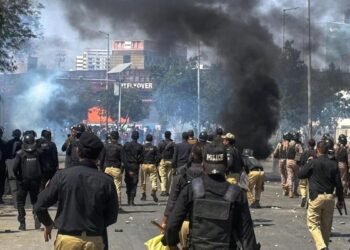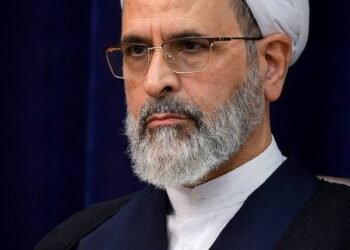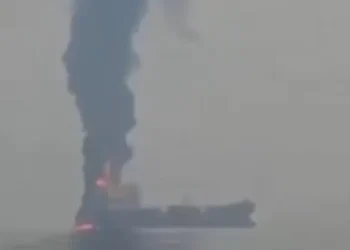CorCom calls for statewide shutdown, UNC enforces trade embargo, Kuki-Zo women seek justice and accountability, Kuki-Zo Council alone extends an open hand to Modi in conflict-hit Manipur.
BY Navin Upadhyay
September 10, 2025 — The mood in Manipur remains tense and uncertain ahead of Prime Minister Narendra Modi’s much-hyped visit on September 13, his first to the conflict-torn state since ethnic violence broke out in May 2023. While insurgent groups, Naga organizations, and civil society bodies have voiced strong opposition or skepticism, the Kuki-Zo Council (KZC) and other tribal outfits have extended an unconditional welcome — hailing the visit as historic and investing it with hope for justice and reconciliation.
Boycott Call by Valley Insurgent Groups
On September 10, the Coordination Committee (CorCom), a coalition of banned valley-based insurgent groups, called for a statewide boycott of the Prime Minister’s visit. Through a statement issued by its Publicity Committee, CorCom alleged that the tour was not intended to restore peace or development but to sow further divisions by “exploiting proxy-war elements.” The group announced a total shutdown from 1 a.m. on September 13 until Modi’s departure, exempting only essential services such as medical care, fire services, water supply, and religious rituals.
READ:
Valley-Based Insurgent Coalition Calls Boycott of PM Modi’s Manipur Visit https://t.co/cH2zyOzrkB #ManipurCrisis #CorCom #PMModi #BoycottCall #NorthEastIndia #SecurityTensions
— POWER CORRIDORS (@power_corridors) September 10, 2025
CorCom underscored that since May 3, 2023, Manipur has endured one of its worst ethnic crises, with at least 250 people killed and nearly 60,000 displaced. The violence was triggered by protests over a High Court directive on Scheduled Tribe status for the Meitei community, which spiraled into clashes between the Meitei and tribal communities, particularly the Kukis.
COCOMI, FOCS Silent
Two of Imphal’s most influential valley-based civil society organisations — the Coordination Committee on Manipur Integrity (COCOMI) and the Federation of Civil Society Organisations (FOCS) — have so far refrained from issuing any formal statement of welcome. Their silence stands in sharp contrast to the Kuki-Zo Council’s open endorsement of the visit, which it hailed as “historic” and symbolically significant for the violence-hit community.
READ: Historic Lifeline: Mizoram Unveils Helicopter Link to Churachandpur
Naga Blockade on Vital Highways
Adding to the uncertainty, the United Naga Council (UNC) imposed an indefinite “trade embargo” on September 8, halting the flow of goods along Manipur’s two lifelines — National Highway 2 and National Highway 37. More than 150 trucks carrying essential supplies from Assam have been stranded at Mao, the Nagaland-Manipur border.
The UNC launched the blockade to protest the revocation of the Free Movement Regime with Myanmar and the fencing of the international border, which it argues undermine traditional Naga ties and rights. Community volunteers have set up checkpoints in Senapati, Ukhrul, Chandel, Tamenglong, Noney, and Kamjong, preventing the movement of commercial carriers.
READ: UNC Trade Blockade Threatens to Choke Manipur’s Lifelines Ahead of PM’s Visit
Anger Over Coffin Removal
The situation has been further inflamed by the controversial removal of coffins from the Wall of Remembrance in Tuibong, Churachandpur, a site that had become a symbol of mourning and resistance for the Kuki-Zo people. The action, carried out by the district administration with the consent of some local organizations, has triggered outrage and renewed mistrust within the community, deepening the sense of betrayal ahead of the Prime Minister’s visit.
Protests Against Dance Ceremony Plans
Several organizations representing the Kuki-Zo community have also opposed a planned dance programme to welcome the Prime Minister. The Imphal Hmar Displaced Committee condemned the move, declaring, “We cannot dance with tears in our eyes. Our mourning is not yet over, our wounds are not yet healed.”
The Gangte Students’ Organisation in Churachandpur echoed the sentiment, insisting that Modi should interact directly with those in relief camps rather than participate in celebratory events. The Kuki Inpi Manipur, however, struck a balanced note — welcoming the visit but stressing that it must “serve justice and recognize the collective aspirations of the Kuki-Zo people.”
Kuki-Zo Council Stands Apart
Against this backdrop of boycotts, blockades, and cautious welcomes, the Kuki-Zo Council (KZC) has emerged as the leading tribal body to wholeheartedly embrace the Prime Minister’s visit. In a press release dated September 10, the KZC called the tour a “rare occasion” — the first time in nearly four decades that an Indian Prime Minister will set foot in Kuki-Zo areas. The council released posters of Modi and described the visit as “historic,” entrusting him with the responsibility of healing their wounds and restoring justice. Since KZC is apex body of the Kuki-Zo civil society organisation, it is understood they are on board in extending unconditional welcome to PM Modi.
“Supplicant vs. Defiant: Kuki-Zo Bodies Issue Split-Tone Appeals Before PM’s Visit https://t.co/WMjPGTWnTy #ManipurCrisis #KukiZoVoices #SplitToneAppeals#JusticeForKukiZo #PMModiVisit #ManipurConflict
— POWER CORRIDORS (@power_corridors) September 10, 2025
The Kuki-Zo Women’s Forum, Delhi & NCR, while also welcoming the visit as “pivotal,” adopted a sharper tone. The forum accused former Chief Minister N. Biren Singh and Rajya Sabha MP Sanajaoba of complicity in “state-sponsored ethnic cleansing” and demanded four urgent measures: creation of a separate administration with Union Territory status, accountability for genocide, rehabilitation of displaced families, and dismantling of Meitei armed groups such as Arambai Tenggol and Meitei Leepun.
A Divided Landscape
The divergent responses illustrate the fractured mood in Manipur. While insurgent groups and Naga bodies challenge Modi’s visit through boycotts and embargoes, civil society remains torn between grief, distrust, and hope. For the Kuki-Zo Council, however, the Prime Minister’s arrival is nothing short of historic — a rare opportunity for recognition and redress after two years of displacement and suffering.
As Manipur braces for September 13, the state finds itself at a crossroads: between protest and participation, between despair and cautious optimism.



